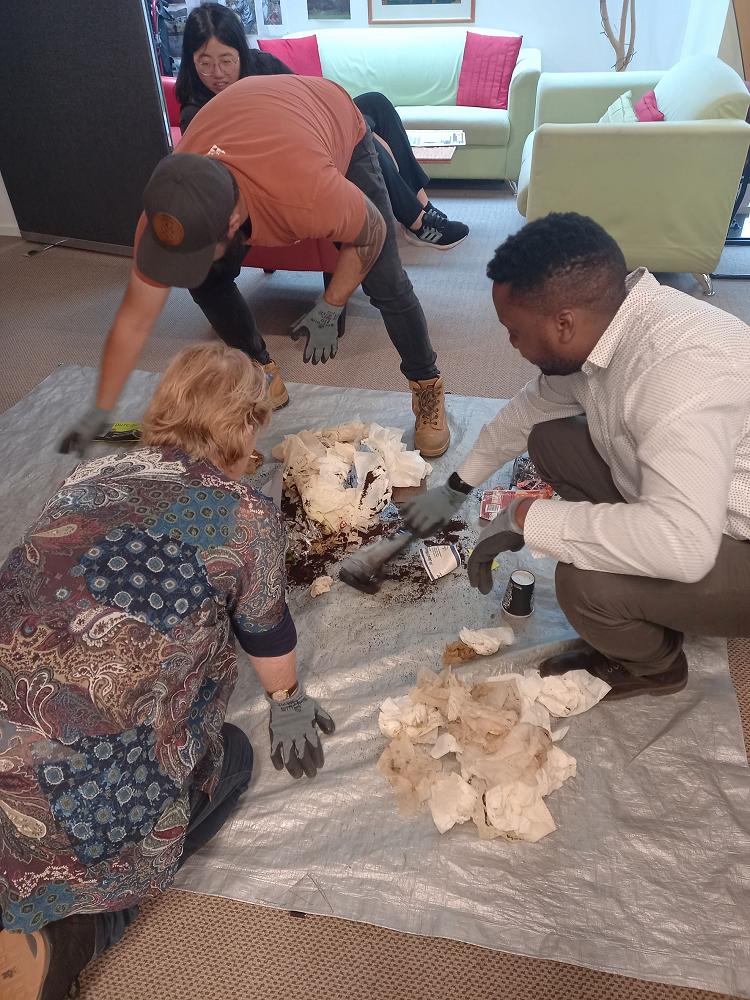
Zero Waste – Rekindle the Vā of Papatūānuku
Rev Mark Gibson in his article, Like the Waves we Rise High, Touchstone February 2023, reminds us that for our church to rise high above the detrimental impact of climate change, we must collaborate and make a collective effort to implement zero waste in our community.
His theme was a portion of a song that echoes the demand for teamwork to achieve the theme of ‘Rekindle the Vā of Papatūānuku.” Mark says, “The song is a soaring anthem for resilience and solidarity in the face of environmental destruction and rising sea levels.” We have to work together to heal the damage that our human activities have imposed on the creation.
The word ‘rekindle’ is translated in Tongan to ‘hunuaki’; a word that is used when the fire is dying, and more firewood is required. It is an effort to reignite and revive the power of the fire to keep on burning and never die. It means more wood must be added for the fire to be strong and maintain its flame. All the wood contributes to the fire and the accomplishment of its purpose whether to cook food or to warm people. This living experience can be an analogy for the importance of our collective effort to strive for zero waste in our community. It is with everyone’s contribution we achieve the goal of zero waste. Is it possible? How can we achieve this goal?
Genesis 1: 29-31, says, “God said, “See, I have given you every plant yielding seed that is upon the face of all the earth, and every tree with seed in its fruit; you shall have them for food. And to every beast of the earth, and to every bird of the air, and to everything that creeps on the earth, everything that has the breath of life, I have given every green plant for food.” And it was so. God saw everything that he had made, and indeed, it was very good.”
From the words of the scriptures, there are four important aspects that we need to consider. Firstly, God’s creation was looking good in the first place. Secondly, humans were given the responsibility to be good stewards. Thirdly, God’s creation can regrow and reproduce. Fourthly, there is food for every creature, big and small. As stewards of God’s creation, we must work collectively as co-creators with God in re-growing the trees by sowing the seeds that they have produced, and caring for every creature with the assurance that they have access to food for their sustenance. If we can follow closely to this original design of our food production, we can potentially reach our aim of achieving zero waste.
Rev Dr Betsan Martin in her article, Touchstone October 2020, alluded to this theological notion by suggesting that we should promote a circular economy to address climate justice. She writes, “A circular economy is to live within the means of the planet and for all to have sufficient life, health and fulfilment. This includes scope for community-centred lives and culture and spirituality and creativity.” Betsan’s opinion on circular economy reminds us of the notion of vā. It means that for us to have community-centred lives and culture and spirituality and creativity, we must respect and sustain our vā with Papatūānuku by protecting our natural environment from exploitation and abuse. We may achieve that if we start to practice recycling, reusing, and reducing the waste we produce.
I’m not suggesting anything new. There are individuals, communities, and churches that are already practising recycling, reusing, reducing, and replanting. One example is Hamilton East Methodist Parish which started a project of minimizing waste in their community, some years ago. They stationed bins in their church hall for reusing, recycling, and replanting and. asked their members to donate goods in the bins to be used for their specific purposes. I’m sure other parishes are doing projects and we need to share their initiatives to encourage others to participate.
